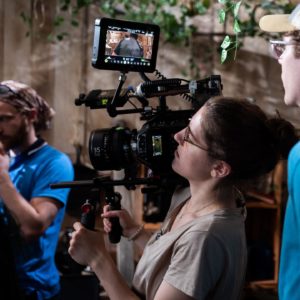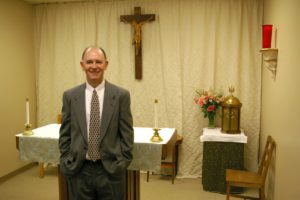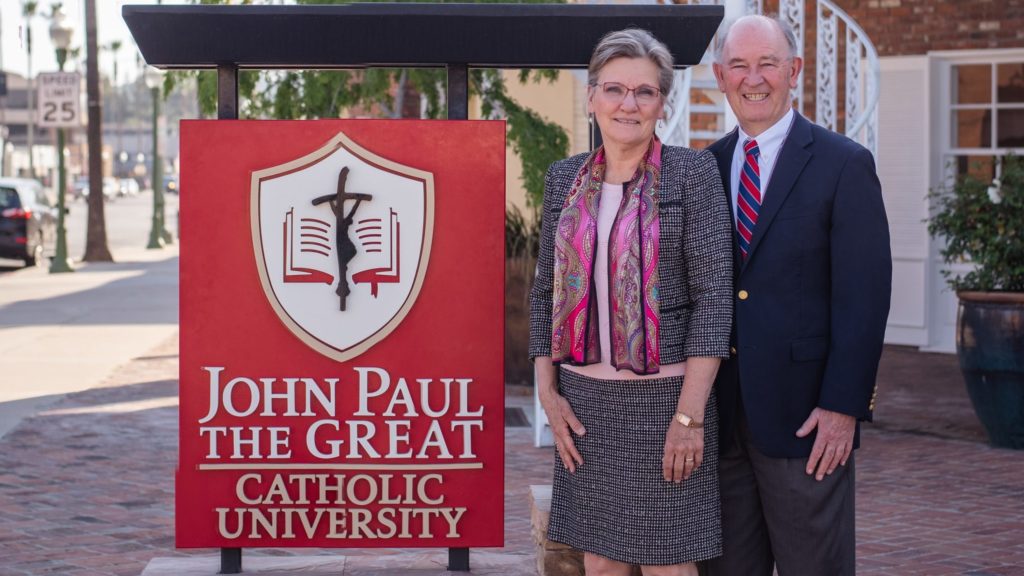Derry Connolly, Ph.D.’s life reads like the synopsis of a movie screenplay. An Irish graduate student arrives at Caltech in Pasadena with no place to stay. He knocks on the door of the first Catholic church he finds and asks if there is an Irish priest he can talk to.
The priest takes him over to the recently emptied convent, where he is letting students from a fledgling Catholic college live. They have room for one more. One of those students has a sister and Connolly finds his true love. They have been married for 43 years.
But this “screenplay” does not end there.
Years later, Connelly found himself escorting his daughter on a college tour at Franciscan University of Steubenville in Ohio. A few moments in the school’s adoration chapel changed his life.
Connelly was not sure if the university was the right school for his daughter. He was a man of science, and educated in secular academia. But when he made his visit to the chapel and marveled at the number of young, energized Catholic men and women, he felt he was being called by God to do something with what he saw as an untapped spiritual natural resource.
He was unsure what exactly he was being called to do, so like many of us, he put God on hold. A few years later, God called back, and this time Connolly had an idea. He had always been inspired by St. Pope John Paul II’s exhortations on how it was important for Catholics to be engaged with the real world, such as mainstream media.

The pope’s message at World Communications Day in 1992 seemed to be predicting where Connolly was heading in the early 2000s: “The Christian response to evil is, above all, to harken to the Good News and to make God’s message of salvation in Jesus Christ ever more present. Christians have a ‘good news’ to tell. We have Christ’s message — and it is our joy to share it with every man and woman of good will who is prepared to listen.”
Through prayer and a little assistance from John Paul’s legacy, John Paul the Great Catholic University in Escondido was born. It would be a place where young creative men and women could hone their skills and learn new ones, in all the major disciplines of media arts, directing, acting, cinematography, animation, screenwriting. This school would send them forth into the “mainstream” culture and give the culture what it lacked — voices coming from a theological and philosophical viewpoint centered on Christ.
Connolly’s idea was not initially met with resounding cheers and applause. To think one was going to make a dent in an often anti-Christian media landscape seemed like a fool’s errand. He thought his own bishop might think so as well, but was caught off guard by the Polish pontiff’s simple summation: “If it is of God, it will succeed; if it is not of God, it will fail.”
Since 2006, Connolly’s university has flourished. What began in a building at an industrial park and a film school with no camera equipment, has grown to a student body of 273 with an $18 million expansion underway that aims to more than double the school’s academic footprint.
Connelly teaches all first-year students a business class. It is a way for him to get to know each of his students, and teaching the practical side of the industry is part of the holistic approach John Paul the Great takes. With an industry where unethical business practices are as famous as the movies it produces, a young person going into media is well-served with sound and ethical business acumen.

When I spoke with Connolly, he was adamant he was not interested in “bubble wrapping” his students, but rather preparing them for full inclusion in the careers they may choose. John Paul the Great University’s mission is to ready future professionals spiritually and philosophically so that when they enter into the “lion’s den” that is mainstream media, they do not become dinner, but rather engaged collaborators whose love for Christ shows.
Half of the 273 students come from Southern California, with the other half from just about everywhere else. The ethos of the school is best summed up by what Connolly said about a young woman who just graduated with a cinematography degree. “She said she came to JP the Great for Jesus first, and cinematography second.”
When John Paul visited Los Angeles, arguably the media capital of the world, he addressed assembled media professionals with the following challenge: “May all engaged in the field of communications recognize that they are truly stewards and administrators of an immense spiritual power that belongs to the patrimony of mankind and is meant to enrich the whole of the human community.”
Back in 1987, if a young man or woman wanted to take the pope’s words to heart, there was no film school in existence where faith and film instruction cohabitated in such a profound way. There is now, and it is John Paul the Great University in Escondido.

